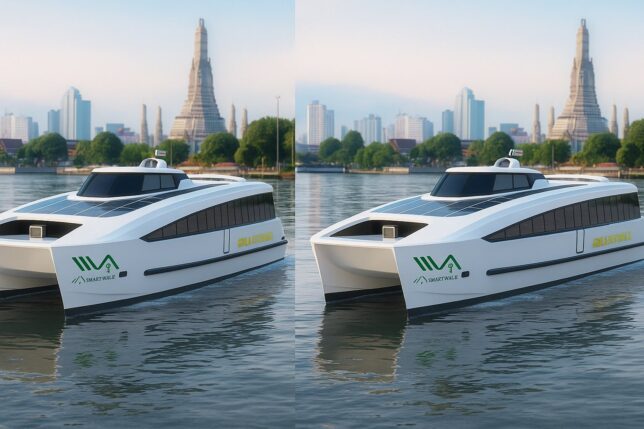LAGOS: The Omi Eko Project, a flagship mass water transportation initiative in Lagos State, is set to revolutionise daily commuting for millions of residents by reducing travel time by up to three hours per trip and promoting a cleaner, more sustainable environment.
The Head of the European Union Delegation to Nigeria and ECOWAS, Ambassador Gautier Mignot, stated this during the official launch of the project in Lagos over the weekend.
According to Mignot, the Omi Eko initiative implemented by the Lagos State Waterways Authority (LASWA) is backed by a €410 million funding package from the European Investment Bank (EIB) and the French Development Agency (AFD) under the EU’s Global Gateway Initiative.
He said the project would introduce 78 high-speed electric ferries with capacities ranging between 50 and 200 passengers, along with modern terminals, floating jetties, digital ticketing systems, and smart boarding facilities to enhance efficiency and passenger experience.
The comprehensive plan also includes dredging, and channel works across 140 kilometres of waterways to open up 15 priority ferry routes across Lagos.
Ambassador Mignot explained that the project, designed to strengthen sustainable urban connectivity, would help reduce annual carbon dioxide emissions by 41,000 tonnes, marking a major step toward climate-friendly transport solutions in Africa’s largest city.
The Omi Eko project demonstrates the commitment of both federal and state authorities to improve the quality of life in Lagos through sustainable development, Mignot said.
By expanding small-scale water transport into a large, efficient network, we can improve accessibility and mobility for millions of people.
Each year, CO₂ emissions will drop by 41,000 tonnes, and 25 million passengers will save an average of three hours of travel time during peak periods.
He projected that, over time, the project would become the preferred transport choice for Lagos residents.
Speaking also at the event, French Minister for Europe and Foreign Affairs, Jean-Noël Barrot, said the Omi Eko project was designed to absorb up to 80 centimetres of rising sea levels, thereby protecting Lagos from the adverse effects of climate change
This project will help fight climate change by decarbonising transportation and reducing Lagos and Nigeria’s carbon footprint, Barrot said.
It will also ease commuting stress by cutting travel times, lowering transport costs which currently account for about 40 per cent of household budgets and providing access to the city’s transport networks for residents living far from the centre.
Lagos State Governor, Babajide Sanwo-Olu, described the Omi Eko project as a future driven initiative aimed at reshaping mobility through innovation and environmental consciousness.
The Omi Eko project represents a comprehensive, future-oriented vision for sustainable mobility in Lagos, Sanwo-Olu said.
“It merges technology with environmental stewardship, transforming our waterways from barriers of separation into corridors of opportunity.
He added that the state’s goal is to make transportation seamless, safer, and eco-friendly, positioning Lagos as a model for other African megacities confronting the twin challenges of urban population growth and climate change.
While many global cities are just beginning to tackle these issues, Lagos is already setting the pace,” he noted.



